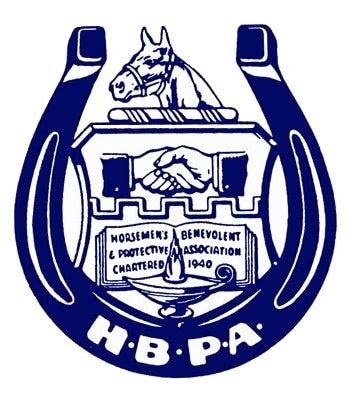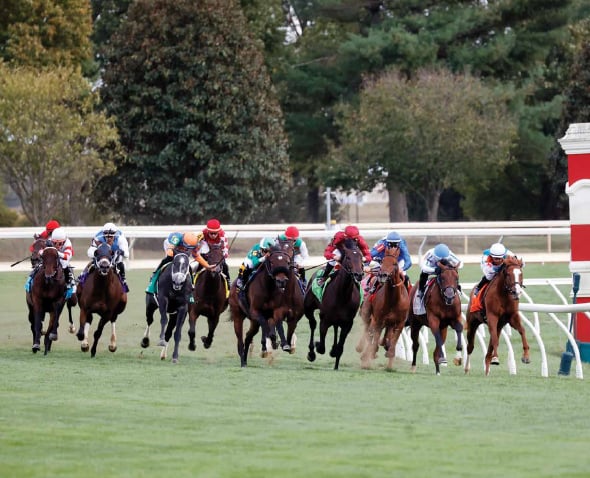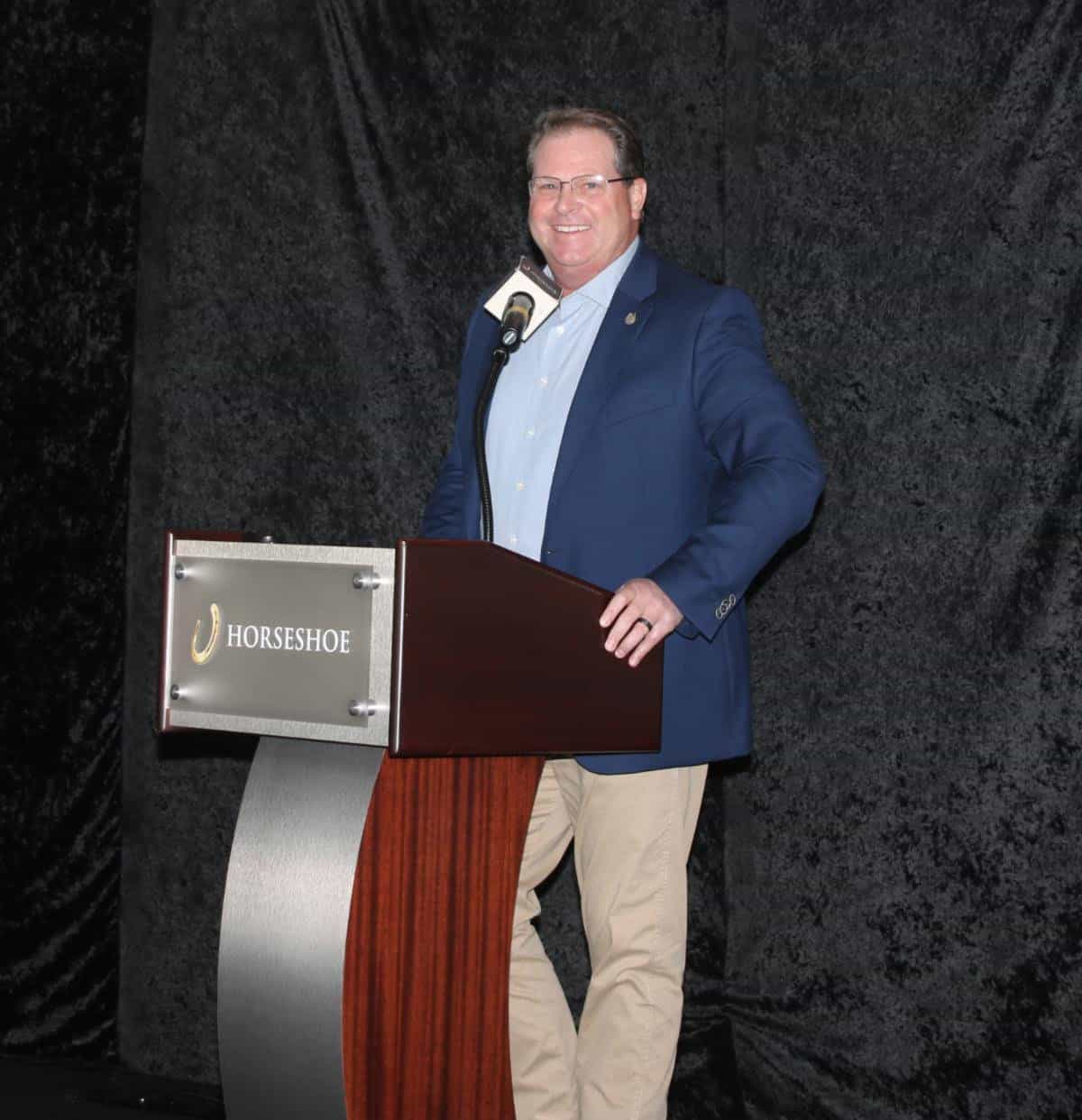Simo Conference: Innovation in Racing Not Without Obstacles
Blood-Horse
Fantasy sports, fixed odds, and broader distribution were offered as potential avenues of growth for the pari-mutuel racing industry—all of them with caveats—during an Oct.6 session at the International Simulcast Conference in Clearwater Beach, Fla.
The options were discussed during a panel discussion titled “Wagering Innovation or Die?” None of the speakers suggested pari-mutuel racing will die, but they also didn’t say growth in a highly competitive gambling market will be easy. In fact, growth is often hindered by structural obstacles in the industry or state and federal laws.
Daily fantasy sports, commonly called DFS, have shown rapid growth under the language of the Unlawful Internet Gambling Enforcement Act, which doesn’t ban the contests. Already, there are calls for regulation.
Fixed-odds betting would require regulatory changes in each racing state. And broader distribution of pari-mutuel racing through online means is still not permitted in some states; in some where it is legal, added fees have chased away bettors.
John Ford, chief executive officer of BAM Software and Services, which has the advance deposit wagering platform BetAmerica.com as a client, said fantasy sports has a role in encouraging pari-mutuel play when they are offered on the same platform.
“We think it’s a way to bring new customers into the pari-mutuel industry,” Ford said. “Our experience has proven that to be true. Of the folks that have paid entry fees (for fantasy games), 85% of them have last least made one pari-mutuel bet on the site.”
“But it isn’t without controversy,” he said, in reference to reports of the misuse of “insider data” for games run by FanDuel and DraftKings that pay cash. “I have thought from the beginning that fantasy sports ultimately will be licensed and regulated.”
Walter Hassert, co-founder and chief product officer for Derby Games, said pari-mutuel racing can greatly benefit from fantasy sports and perhaps learn from its operations.
“Daily fantasy sports is focused on growth, unlike the pari-mutuel business,” Hassert said. “There is a macro trend in horse racing, which asks, ‘How do we protect our current volume of handle?’ It should really be about, ‘What are you using to grow (handle)?’ ”
As for fixed odds, Ford said “a variety of bet types can only be a good thing.” The platform also is easier for novices to understand.
“The challenge for newcomers is not knowing what they’re going to be paid for a wager,” Ford said. “I definitely think fixed odds can be helpful. From a regulatory and statutory standpoint it’s a struggle to explain pari-mutuel wagering, but to tweak racing laws is a much more achievable goal than trying to get casinos or online poker.”
Brett Wiener, a horseplayer who now focuses on handicapping contests—he said he can play about 20 different online contests on a Saturday—said distribution remains an issue for horse racing. He pointed to states in which residents can’t legally bet through advance deposit wagering services and live a great distance from racetracks and off-track betting parlors.
Wiener said his total pari-mutuel handle has dropped about 25% because he would rather play in contests with better return on investment. He said wagering into pools “with 30% takeout that goes to the house doesn’t appeal to me. And the little guy feels he has no chance.”
Wiener said he now has no reason to go to the races to watch them live. But fellow contest player Judy Wagner, now a member of the Louisiana State Racing Commission, said getting people to racetracks should remain a priority.
“I know how to play contests and make a wager,” Wagner said. “We have to never lose sight of getting people interested in the sport. I’m a strong supporter of on-track experiences. One of the biggest obstacles is people feeling the insecurity of the unknown.”





